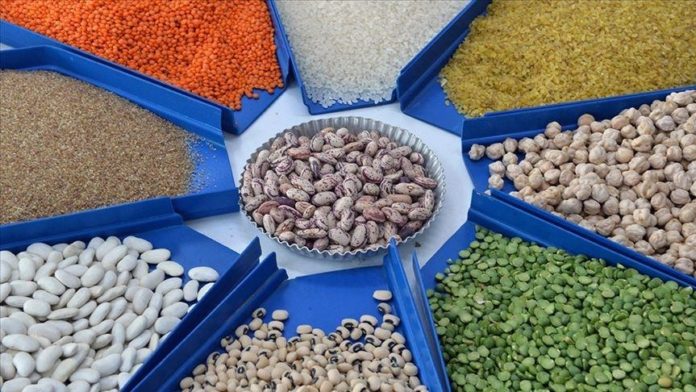The government of Namibia has rolled out several agronomic programmes in its quest to improve crop production, food security, create employment as well as contribute to the reduction in poverty and income inequality.
The programmes, initiated by the ministry of agriculture include; Dry Land Crop Production Programme (DCPP), complemented by the Cereal Value Chain Development Programme (CVCDP), among others.
They will implemented in the 10 crop-growing regions (Kunene, Omusati, Oshana, Oshakati, Ohangwena, Kavango West, Kavango East, Zambezi, Otjozondjupa and Omaheke). The Comprehensive Conservation Agriculture Programme, which is complementary to the DCPP, through subsidy to reaping, seeds and fertilisers, is implemented in all regions of Namibia.
Agriculture ministry spokesperson Jona Musheko said the overall objective of DCPP is to ensure and accelerate the provision of subsidised agricultural production inputs (improved seeds and fertilisers) and mechanised services (tillage and planting), thereby increasing crop yield, food and nutrition security, creation of employment opportunities as well as contribution to the reduction in poverty and income inequality.
Programmes benefit
A total of 339 tons of pearl millet (mahangu), 2.73 tons of cowpeas, and 9.55 tons of sorghum seeds are available for the 2021/2022 cropping season as per the DARD presentation at the Swakopmund meeting in October 2021.
The allocation is as per the regional needs submitted and the tonnage of seeds. Musheko said the programmes benefit the farmers through ploughing, reaping and planting services, provision of seeds and fertilisers, weeding services and capacity building. A total of 30 772, of which 13 744 are male and 15 938 are female farmers, benefitted from the services and input supply during the 2020/2021 cropping season.
“The ministry has availed 202 tractors with implements for the 91 constituencies in the 10 crop-growing regions to assist farmers with tillage and weeding services. The farmers are expected to pay a subsidised price of N$250 per hectare to a maximum of five hectares for government tractors. Farmers utilising private tractors are subsidised with N$350 per hectare to a maximum of five hectares through a voucher system,” he stated.
He added the subsidised tillage service commenced in September for river fields and the upper land on 1 November 2021.
“Furthermore, the ministry will provide subsidised weeding services through women and youth groups, where farmers are subsidised at N$250 per hectare to a maximum of five hectares. Ploughing for river fields has commenced in the Zambezi region. Eight tractors are deployed for the river fields in the Zambezi region.”
He stressed that tractors in Ohangwena, Omusati, Oshikoto, Oshana, Otjozondjupa and Omaheke are serviced and ready for ploughing. Procurement for the servicing and repair of tractors and implements in Kavango West, Kavango East, Zambezi and Kunene regions was initiated and ongoing.
Musheko further emphasised that 458 tons of pearl millet (mahangu), 20 tonnes of maize, 20 tonnes of Sorghum and 20 tonnes of cowpeas seeds are to be sold on subsidy during the 2021/2022 cropping season. Furthermore, budget provision is made to avail a total of 35 tons of maize seeds through a voucher system to enable farmers to access the seeds from private retailers.









